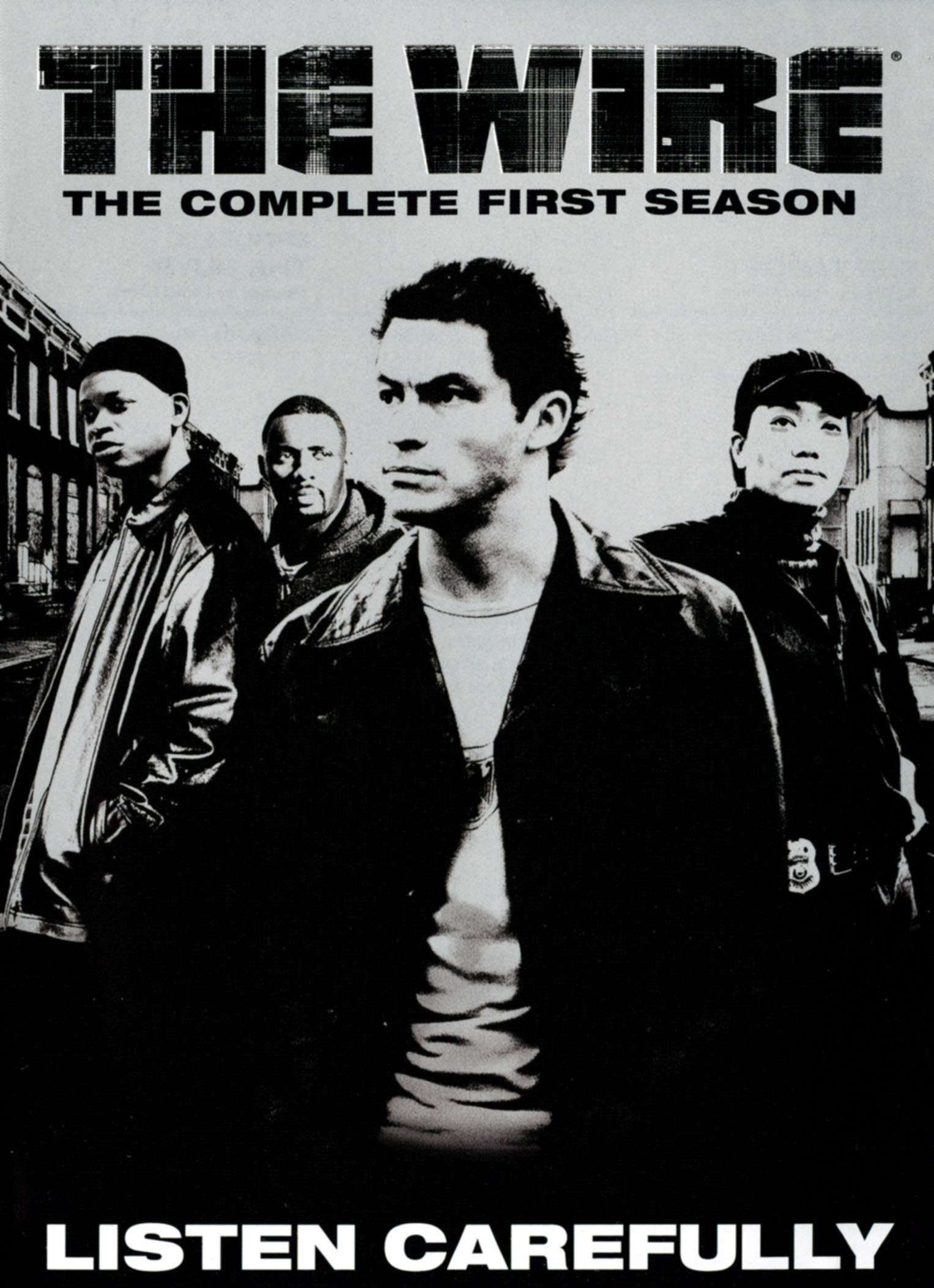The Wire was telecast on HBO from 2002 to 2008. It is tempting to think that the series was a sort of precursor to Breaking Bad that aired its first episode in 2008. Like Breaking Bad, The Wire deals with drugs but its canvas is much bigger. Breaking Bad shows the decline of an individual from a normal life to the underworld along a journey that borders on insane. Although The Wire starts with the drug scene and police in Baltimore, it covers a wide range of environments, ranging from Mayoral politics and schools to seaport system and newspaper business. These may seem like independent areas but the series connects them intricately. For instance, failures of schools and education system is intimately connected with the drug trade where young children are recruited to stand on the corner selling drugs and keeping lookouts for narcos.
The Wire has a protagonist, Detective Jimmy McNulty played by Dominic West, along with other major characters like his partners Bunk Moreland (Wendell Pierce) and Kima Greggs (Sonja Sohn) but unlike Breaking Bad the story does not stay focused on them. The story progresses as dictated by the circumstances and while doing so, it shows the world exactly as it is. For instance, in the last season, one of the major problems faced by the Baltimore Police Department is lack of funds. In majority of criminal fiction, the police resources – cars, manpower, surveillance equipment – are always available and unlimited in supply. The Wire shows what happens in reality. The police are not paid any overtime, active wiretaps on drug kingpins are abruptly cancelled and forensic reports on murders are delayed due to lack of manpower.
The series brings out real problems faced by people who are trying to work within the system. Few detectives are interested in real police work, Jimmy McNulty and his colleagues are exceptions rather than norm. The Police Commissioner orders that crime statistics should be ‘adjusted’ to show that crime rate has come down. He is doing this because of an order from the Mayor, who in turn, has his eyes set on the Governor seat. In the meantime, millions of dollars of drug money is being poured into real estate, charities and non-profits. The higher brass are not interested in chasing the money because it will lead them to some inconvenient places, like election funds.
The Wire sharply criticizes the ‘war on drugs’ policy. In one season, one of the district commanders tries an experiment. He identifies three deserted areas in the city and conveys to the drug dealers that if they conduct their business in those areas, the police will not bother them. It works. Crime rate comes down, city streets become quiet and in the drug zones, social workers find it much easier to help and intervene drug addicts. Unfortunately, this bold approach is too much for the system that has been brainwashed with war on drugs propaganda. When the truth comes out, the police commander is sacked and the drug zones, popularly known as ‘Hamsterdam’ are dismantled. Crime rate shoots up and things go back to status quo.
If this sounds like a hopeless story plot, it is because it depicts real life, where easy solutions seldom exist. In one of the episodes, detective Lester Freamon (Clarke Peters) asks McNulty,
“Tell me something, Jimmy. How do you think it all ends?”
“What do you mean?”
“A parade? A gold watch? A shining Jimmy-McNulty-day moment, when you bring in a case soooo sweet everybody gets together and says, ‘Aw, shit! He was right all along. Should’ve listened to the man.’ This job will not save you, Jimmy.”
The story somewhat echoes this sentiment. Yes, the bad guys do get punished now and then, like Avon Barksdale, king of the drug mafia who goes to jail at the end of first season. But even such victories come with caveats. The drug empire still runs smoothly, thanks to his second-in-command Stringer Bell (Idris Elba), who attends economics classes and applies the theories of demand and supply to his drug business.
This is what makes The Wire so fascinating. Every character is unique, has his/her unique limitations and has a rich backstory. So you have a drug lord who keeps a copy of Adam Smith’s The Wealth of Nations, an alcoholic detective with authority issues, a snitch who is a heroin addict, a detective sergeant who reads porn magazines while at work and so on.
The Wire is not shy in depicting nudity or violence. At the same time it does not revel in it. This is a delicate balance that the series manages to maintain throughout. (As an aside, it is somewhat comical to see an actress subtly trying to keep the sheet ‘in place’ in a post-lovemaking scene. Either show it as it is or don’t show the post-coital scene but why would a woman hide her body from a lover with whom she just had sex? She is doing it for the camera and it feels corny and artificial.) While most of the series is shot in a straightforward manner, every once in a while, these is a picturesque frame of a moon or a sunset or quiet night street, as if the camera is literally trying to stop for a moment and ‘smell the roses’.
There are some happy endings. Bubbles, the heroin addict, finally manages to rid himself of the addiction and lives a clean life helping others. A police superintendent adopts a boy running drugs on the street and saves a life. But such stories are few and far between. A reference to Kafka in the last season is warranted because there are so many Kafkaesque moments in the story. As the series concludes, Omar Little (Michael K.Williams) who frequently robs the drug dealers and is a terror on the street meets his end at the hands of boy less than 10 years old who shoots him in the head. McNulty and Lester are both fired from the police department. Marlo Stanfield (Jamie Hector), the drug kingpin, walks free without any charges on the condition that he will not return to the drugs business. He sells his drug operation for 10 million dollars but yearns to return to the street and establish his power. The reporter for The Baltimore Sun who routinely makes up fictional quotes to embellish his news stories goes on to win the Pulitzer Prize for his coverage of the homeless in Baltimore while a senior reporter with great track record and vast network of reliable sources is given the pink slip. The mayor becomes the governor and the Police Superintendent is promoted to become Superintendent of the State.
In other words, life goes on.



